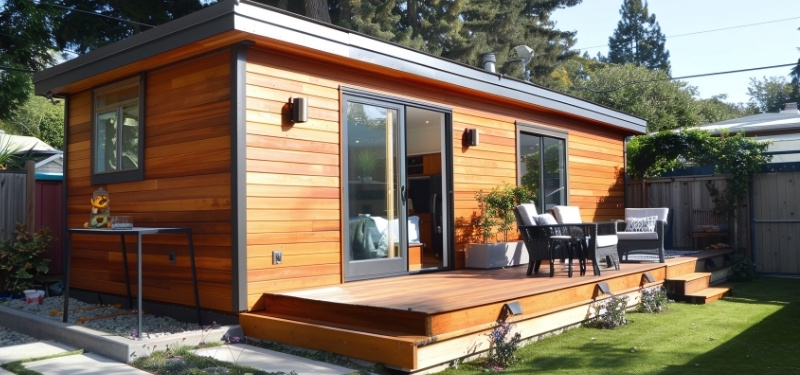Background
On August 6, 2024, Governor Healey signed the Affordable Homes Act (“Act”) into law (H. 4977). Among its numerous changes to existing law, the Act requires municipalities to allow the building of accessory dwelling units (“ADUs”) up to 900 square feet as of right in single-family zoning districts, removes explicit statutory authority for municipalities to impose owner occupancy requirements, and prohibits municipalities from unreasonably restricting the creation or rental of an ADU that is not being used as a short-term rental. Specifically, the Act amends Section 7 and Section 8 of the Massachusetts Zoning Act, which is codified as G.L. c. 40A.
The new law is intended to provide greater flexibility and opportunity for homeowners to add ADUs to their property, and the limitations imposed upon municipalities in connection with the modification to their municipal zoning bylaws may have such effect.
Section 7
The changes to G.L. c. 40A, § 7 went into effect upon the signing of the Act, on August 6, 2024.
Section 7 defines an “ADU” as a self-contained housing unit, inclusive of sleeping, cooking and sanitary facilities on the same lot as a principal dwelling.
Pursuant to G.L. c. 40A, § 7, ADUs are required to: (1) maintain a separate entrance, either directly from the outside or through an entry hall or corridor shared with the principal dwelling sufficient to meet the requirements of the state building code for safe egress; (2) be no larger in gross floor area than 1/2 the gross floor area of the principal dwelling or 900 square feet, whichever is smaller; and (3) adhere to applicable municipality restrictions, including, but not limited to, additional size restrictions and restrictions or prohibitions on short-term rental, as defined in G.L. c. 64G, § 1, provided, however, that no municipality shall unreasonably restrict the creation or rental of an ADU that is not a short-term rental.
Section 8
The changes to G.L. c. 40A, § 8 are effective February 2025. Specifically, municipalities have until February 2, 2025, to amend their local zoning bylaws to come into compliance with the Zoning Act’s new ADU provisions.
Municipalities may impose reasonable restrictions and requirements as to the development of ADUs, including, but not limited to: site plan review; Title V requirements; dimensional setbacks; bulk and height of structures; and short-term rentals.
Municipalities cannot unreasonably restrict or require: owner occupancy of either the ADU or the principal dwelling; a special permit or other discretionary zoning approval for the use of land or structures for a single ADU, or the rental thereof, in a single-family residential zoning district; more than 1 additional parking space for an ADU located ½ mile from a commuter rail station, subway station, ferry terminal or bus station; and any parking for an ADU located within ½ mile from a commuter rail station, subway station, ferry terminal or bus station.
Implications
The changes to the Zoning Act are likely to lead to the proliferation of ADUs in the coming years. The new law is intended to provide greater flexibility and opportunity for homeowners to add ADUs to their property, and the limitations imposed upon municipalities in connection with the modification to their municipal zoning bylaws may have such effect.
There are some gray areas in the law, which MBG will continue to monitor. For example, the new law does not define what constitutes a “reasonable” restriction. Therefore, municipalities lack clarity on what a reasonable restriction is, which could lead to litigation. Second, many homeowners interested in adding an ADU likely live lots that are considered to be undersized or in a house that is at or near its dimensional limit. These proponents would likely need to obtain zoning relief in order to develop an ADU on their property.
Furthermore, the ability of municipalities to require site plan review may add an extra step to the process. Site plan review applications typically require those proposing an ADU to retain an engineer, architect, attorney, and/or other consultants. Site plan review also requires a public hearing, and the reviewing authorities have broad discretion in their imposition of conditions. These factors add time and expense. Thus, we will have to wait and see whether this change will advance housing production and make its intended difference.
MBG will continue to keep its clients and the industry apprised of any developments.


